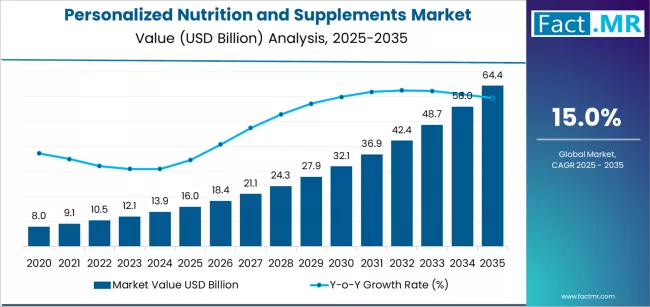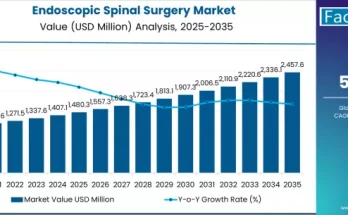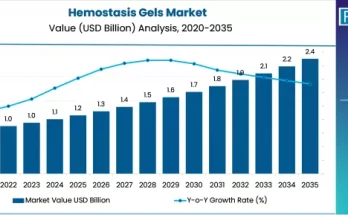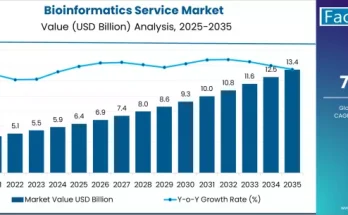The modern health and wellness industry is rapidly evolving, with consumers seeking solutions tailored to their individual dietary needs, genetic profiles, and lifestyle preferences. The personalized nutrition and supplements market is at the forefront of this transformation, offering customized vitamins, minerals, probiotics, and functional foods designed to optimize personal health outcomes. Personalized nutrition blends science, technology, and consumer insights to provide highly targeted solutions that go beyond conventional one-size-fits-all approaches.
Market Overview
Personalized nutrition and supplements leverage a combination of biometric data, lifestyle analysis, and emerging technologies such as genomics, microbiome mapping, and AI-driven analytics. These insights allow manufacturers to design supplements that align with an individual’s metabolic profile, nutrient deficiencies, and wellness goals.
The market encompasses a wide array of offerings, including DNA-based supplement recommendations, nutrition-focused mobile applications, subscription-based personalized products, and AI-powered dietary guidance platforms. By focusing on individualized nutrition, these solutions aim to improve overall health, prevent chronic diseases, and enhance performance and wellbeing.
Regional Insights
Adoption of personalized nutrition and supplements varies globally, shaped by consumer awareness, healthcare infrastructure, and technology penetration.
North America is a leading region in adoption due to high health consciousness, technological innovation, and the presence of numerous startups and established companies offering tailored nutrition products. The region benefits from strong digital health integration, enabling personalized dietary recommendations at scale.
Europe closely follows, with a growing focus on preventive healthcare and nutrition science. Regulatory support for functional foods and dietary supplements, combined with rising consumer interest in wellness, contributes to steady growth.
Asia-Pacific is emerging as a key growth hub, driven by increasing disposable income, rapid urbanization, and a rising middle-class population seeking personalized health solutions. Moreover, regional investments in digital health infrastructure and biotechnology facilitate the adoption of personalized nutrition services.
Latin America and the Middle East & Africa are gradually catching up, supported by growing awareness of lifestyle-related health conditions and expanding digital health penetration.
Key Trends & Forecast
The personalized nutrition and supplements market is witnessing several trends that are shaping its growth trajectory:
Integration of Technology and Health Data
Advances in wearable devices, mobile apps, and health monitoring tools enable consumers to track biomarkers, physical activity, and dietary intake. These insights allow companies to create highly targeted nutritional interventions, improving outcomes and engagement.
Rise of Genomic and Microbiome Testing
DNA and gut microbiome testing have become central to personalized nutrition. By understanding genetic predispositions and gut health, companies can recommend supplements tailored to individual nutrient absorption, metabolism, and overall wellness.
Customized Supplement Delivery
Subscription-based models, personalized blends, and on-demand supplement packaging are transforming consumer experiences. These offerings provide convenience, adherence, and a perception of a more personalized healthcare approach.
Growing Demand for Preventive Healthcare
Consumers increasingly seek to proactively manage health, prevent chronic conditions, and optimize wellness. Personalized nutrition plays a crucial role in preventive health strategies, providing nutrient support that aligns with individual risk profiles.
Integration with Lifestyle & Fitness Solutions
Personalized supplements are often paired with diet plans, fitness regimes, and wellness coaching, creating holistic lifestyle programs. This integration enhances consumer engagement and improves adherence to nutritional recommendations.
Applications & End-Use Outlook
The market spans multiple applications across health, wellness, and performance domains:
- Clinical Nutrition: Targeted supplementation for individuals with nutrient deficiencies, chronic conditions, or recovery needs.
- Fitness and Performance: Customized supplements supporting muscle growth, endurance, and energy metabolism.
- Wellness and Preventive Care: Nutritional solutions aimed at enhancing immunity, cognitive function, and overall health.
- Dietary Management: Supplements designed for specific dietary preferences or restrictions, such as vegan, keto, or low-allergen formulations.
End users include consumers seeking personalized wellness solutions, healthcare providers integrating nutrition into preventive care, and fitness enthusiasts aiming for optimized performance outcomes.
Challenges in the Market
While the market offers significant opportunities, several challenges need to be addressed:
- Regulatory Compliance
Different countries have varying regulations on dietary supplements, health claims, and labeling, which can hinder product launch and market expansion. - Data Privacy Concerns
Personalized nutrition relies heavily on biometric and genetic data. Ensuring data security and privacy is crucial for consumer trust and regulatory compliance. - Cost and Accessibility
Advanced testing, AI-based recommendations, and customized formulations can be expensive, limiting accessibility for some consumer segments. - Consumer Education
Educating consumers about the benefits and scientific basis of personalized nutrition is vital to drive adoption. Misconceptions and lack of awareness can impede growth. - Scalability and Manufacturing Complexity
Producing highly customized supplements in large volumes poses challenges in terms of supply chain management, quality control, and manufacturing efficiency.
Key Market Trends
- AI-Powered Nutritional Recommendations: Artificial intelligence is increasingly used to provide personalized supplement suggestions based on real-time health data and lifestyle inputs.
- Integration with Telehealth Services: Personalized nutrition is becoming part of broader digital health solutions, enabling virtual consultations and remote monitoring.
- Sustainable & Clean Label Focus: Consumers prefer supplements with natural, non-GMO, and environmentally sustainable ingredients, aligning personalized nutrition with broader wellness trends.
- Collaborative Innovations: Partnerships between biotech firms, supplement manufacturers, and healthcare providers are accelerating innovation and improving product efficacy.
Conclusion
The personalized nutrition and supplements market represents a transformative shift in health and wellness, moving away from generic approaches to highly tailored, science-driven solutions. By integrating technology, health data, and consumer insights, this market is unlocking opportunities for better health outcomes, preventive care, and lifestyle optimization.
As consumer awareness grows and technological advancements continue, personalized nutrition is set to become an essential component of modern healthcare, offering tailored solutions that improve individual well-being and foster long-term health management. Companies and healthcare providers that embrace these innovations are well-positioned to lead in this rapidly evolving space.
Browse Full Report – https://www.factmr.com/report/personalized-nutrition-and-supplements-market



